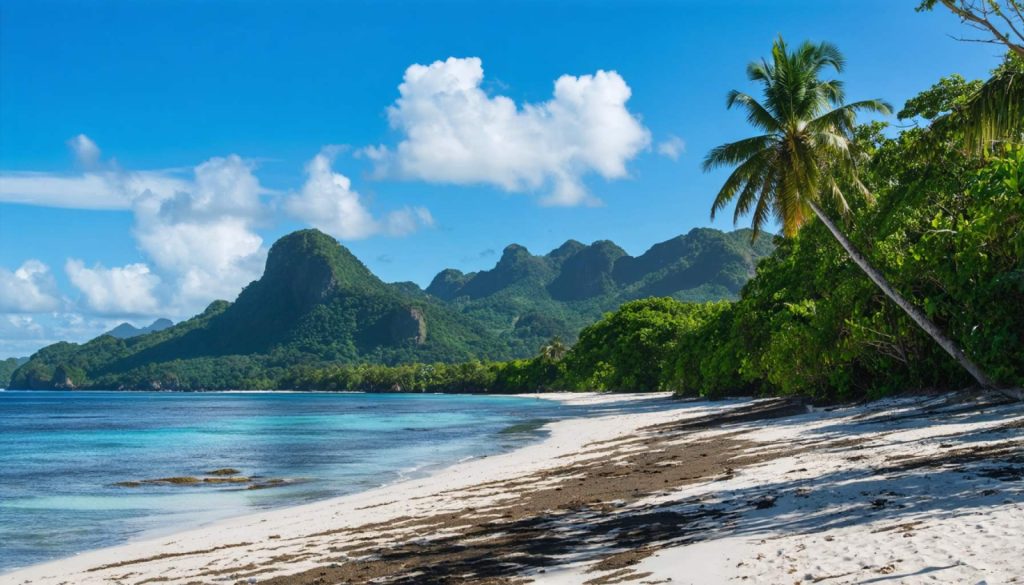
- Seychelles is experiencing a rise in class actions, providing residents a unified legal voice.
- These lawsuits address environmental challenges posed by tourism, climate change, and overfishing.
- The legal framework combines French and English traditions, fostering class action evolution.
- Notable cases involve community efforts to protect endangered ecosystems, spotlighting global environmental conservation.
- Challenges include legal complexities and unifying diverse voices, but advocacy groups are aiding the process.
- Class actions in Seychelles reflect societal change, prioritizing community engagement and ecosystem preservation.
Nestled in the heart of the Indian Ocean, the Seychelles conjures images of pristine beaches, vibrant coral reefs, and exotic wildlife. But beneath its idyllic exterior lies a legal system where class actions are gradually gaining ground, offering residents a collective voice in the pursuit of justice.
Seychelles, with its serene landscape, unexpectedly finds itself at the confluence of environmental and legal challenges. The nation’s fragile ecosystem faces threats from tourism, climate change, and overfishing. In this context, communities have increasingly turned to class actions as a strategic instrument to mount pressure on powerful entities, ensuring accountability and reform.
Picture this: local fishermen, once solitary figures against towering adversaries, band together, invoking the power of numbers to challenge unsustainable fishing practices. These legal actions, albeit rare in the past, are becoming a beacon of hope for those defending their environment.
The legal framework in the Seychelles draws heavily from its mixed jurisdiction, blending French civil law traditions with English common law. This unique legal tapestry provides fertile ground for class actions to take root. Although Seychelles does not have a rich history of such lawsuits compared to Western jurisdictions, the rising awareness and understanding of collective redress rights are gradually changing this narrative.
Decisive legal battles involving class actions often revolve around conservation efforts. For instance, consider the dynamic case where local communities collectively disputed a proposed development threatening to encroach upon a protected wetland. Their unified stand, wielding the power of a class action, brought international attention and governmental re-evaluation, resulting in landmark restrictions that favored environmental conservation.
Yet, the journey is not without its hurdles. The path to successful class actions is often fraught with legal complexities, resource constraints, and the challenge of rallying disparate voices into a single, cohesive unit. However, the rise of advocacy groups and environmental voices is nurturing a culture of collaboration and resilience.
The Seychellois legal landscape is evolving, slowly but surely embracing the empowerment that class actions can provide. These legal tools are not merely about courtroom victories; they symbolize social change and the power of community engagement.
Takeaway: In the Seychelles, class actions are more than legal maneuvers; they are vital expressions of communal will, driving change and protecting the islands’ treasured ecosystems. As the waves of change lap against Seychelles’ shores, the potential of collective legal action anchors the hope for a sustainable future.
Class Actions in Seychelles: The Unseen Force of Environmental Justice
Introduction
Seychelles, an island nation known for its stunning landscapes and rich biodiversity, is witnessing a quiet revolution in its legal system. Class actions, once a rarity in the region, are emerging as a powerful tool for residents to safeguard their environment and hold large corporations accountable. Here, we delve deeper into this legal phenomenon, its implications, and what it means for the future of Seychelles.
The Rising Tide of Class Actions
Understanding Class Actions in Seychelles
– Blend of Legal Traditions: Seychelles integrates French civil law with English common law, creating a hybrid system that accommodates class actions. Unlike Western countries, where class actions are well-established, Seychelles is just beginning to leverage this form of collective redress. This paradigm shift is spurred by socio-environmental demands.
Environmental Focus
– Case Studies of Success: Environmental issues are the catalyst for many class actions. Landmark cases have set precedents in protecting vital ecosystems, such as coral reefs and wetlands, from corporate development. A notable example includes communities rallying against the encroachment on protected areas, bringing global attention and legal triumph.
Challenges and Opportunities
Legal Complexities:
– The path to successful class actions in Seychelles is fraught with intricacies. Drafting a cohesive legal strategy that encompasses the varied interests of a diverse group is daunting but necessary. Legal expertise and resources are pivotal in navigating these challenges.
Community Engagement:
– Advocacy groups are playing a critical role. They unify voices, provide legal assistance, and drive awareness. This growing movement exemplifies resilience and the power of collective action in driving social change.
Expert Opinions and Future Predictions
Market Forecasts & Industry Trends:
– As Seychelles continues to face environmental challenges, class actions are anticipated to become more common. The influence of global environmental policies, such as those from the United Nations, may reinforce local efforts.
Security & Sustainability:
– Legal actions not only aim for immediate environmental protection but also strive for long-term sustainability. This aligns with the global emphasis on preserving natural resources for future generations.
Actionable Recommendations
For Residents and Advocacy Groups:
1. Knowledge and Networking: Increase understanding of legal rights and build alliances with legal experts.
2. Resource Mobilization: Establish legal funds to support class actions, either through crowdfunding or partnerships with international NGOs.
For Policymakers:
1. Legal Reforms: Simplify the process for initiating class actions and ensure ample support for environmental cases.
Wrap-Up
Class actions in Seychelles symbolize more than legal battles—they represent the collective will of communities striving to protect their environment and heritage. As awareness spreads and support systems grow, these legal tools hold the promise of transformative change. Seychelles stands at a unique crossroads where law, environment, and community converge to forge a path towards a sustainable future.
For further insight into the broader legal landscape and its implications, consider visiting the United Nations Environment Programme (UNEP) website for resources on environmental justice.



